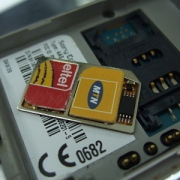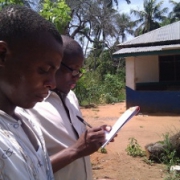Freedom of Information and Women’s Rights

Photo credit: FEMNET
The African Women’s Development and Communication Network (FEMNET) with support from United Nations Educational, Scientific and Cultural Organization (UNESCO) has launched a book titled: Freedom of Information and Women’s Rights in Africa. The book is compilation of five case studies from five African countries namely; Cameroon, Ghana, Kenya, South Africa and Zambia, will help women’s organisations as they organise around freedom of information in their respective countries.
African Union Special Rapporteuer on the rights of women in Africa, Her Excellency Commissioner Soyata Maiga officially launched the book and commended FEMNET and UNESCO for the great initiative of linking freedom of information to women’s rights. She appealed to women’s civil society organizations and progressive governments in the continent to make Freedom of Information as part of the discourse in consolidation of democracy and promotion of socio-economic justice.
“African women have for sometime now been lobbying for women’s rights to be recognized and upheld. Without freedom of information, it has been difficult to do so. Having freedom of information legislation and policies is very important for any democratic state as it is fundamentally related to good governance and sustainable development.” Commissioner Soyata Maiga.
UNESCO Director for Addis Ababa Office Mr. Luc Rukingama said UNESCO is proud to be associated with the launch of the Freedom of information and women’s rights in Africa book and pleased to support gender equality issues and hoped that the book will be used to mainstream through use of ICTs.
FEMNET Chairperson Mama Koite Doumbia said the launch of the book could not have come at better time than now when the Africa Union Summit theme is “Information and Communication Technologies (ICT) in Africa: Challenges and Prospects for Development” “ The book relates well with this years’ theme however ICTs can only enhance development if African government enact and implement Freedom of Information laws and urgently repeal restrictive media and other laws on freedom of expression” said Mrs. Doumbia.
“This years’ theme carries a lot of weight in determining the future of the African woman and the continent with regards to use of ICTs in advancing gender equality. African governments need to promote use of ICTs to increase awareness among women on their rights and facilitate informed decision-making. This could include initiatives that enable citizens to use SMS helplines to report human rights violations and also support the use of ICTs in education (formal and informal) and literacy programmes so as to build ICT skills among young and adult women” added Mrs. Doumbia.







































